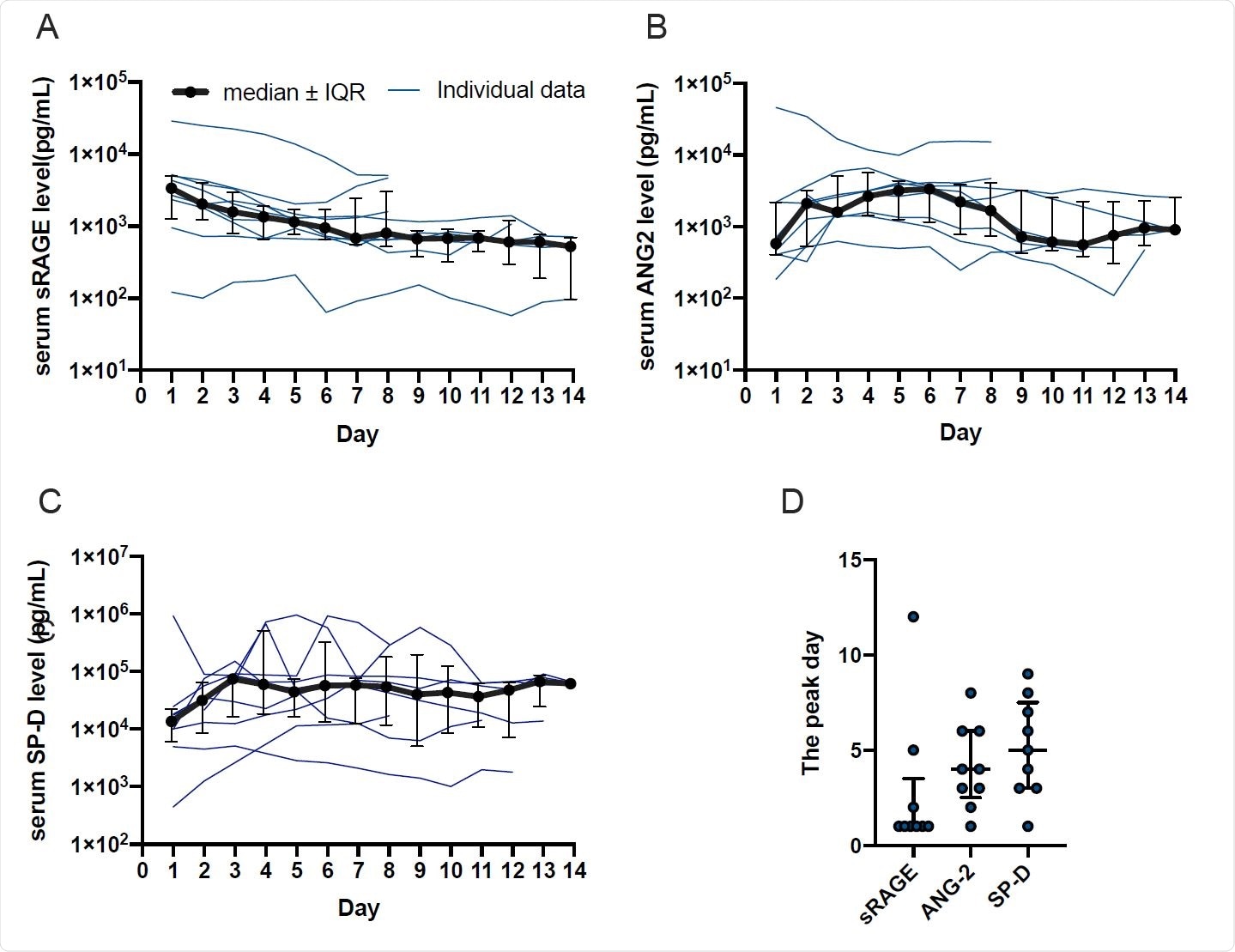A recent study conducted by scientists from the Yokohama City University, Japan, has revealed that elevated alveolar endothelial injury markers in coronavirus disease 2019 (COVID-19) patients with acute respiratory distress syndrome (ARDS) are the main causative factors for alveolar barrier disruption. In COVID-19 patients with ARDS, endothelial injury persists for a longer time than epithelial injury. The study is currently available on the medRxiv* preprint server.

 This news article was a review of a preliminary scientific report that had not undergone peer-review at the time of publication. Since its initial publication, the scientific report has now been peer reviewed and accepted for publication in a Scientific Journal. Links to the preliminary and peer-reviewed reports are available in the Sources section at the bottom of this article. View Sources
This news article was a review of a preliminary scientific report that had not undergone peer-review at the time of publication. Since its initial publication, the scientific report has now been peer reviewed and accepted for publication in a Scientific Journal. Links to the preliminary and peer-reviewed reports are available in the Sources section at the bottom of this article. View Sources
Background
The COVID-19 pandemic caused by severe acute respiratory syndrome coronavirus 2 (SARS-CoV-2) has put a lot of burden on the healthcare and socioeconomic structures of many countries worldwide. Although a significant portion of COVID-19 patients remain asymptomatic or mildly symptomatic, the disease can contribute to serious complications in susceptible individuals. In its severe form, COVID-19 has been found to associate with ARDS. The presence of severe lung edema, together with alveolar epithelial and endothelial injuries, is the primary pulmonary characteristics of COVID-19 patients with ARDS. To develop effective therapeutic interventions, it is important to understand how alveolar tissue injury markers contribute to the pathogenesis of ARDS associated with COVID-19.
Current study design
The scientists have enrolled COVID-19 patients with or without ARDS for this study. They have used serum samples obtained from these patients to measure the levels of alveolar epithelial and endothelial injury markers, namely soluble receptor for advanced glycation end-products (sRAGE) and angiopoietin-2 (ANG-2), respectively. In addition, the serum level of surfactant protein D (SP-D), which is a marker of alveolar barrier permeability, was measured.
In addition to comparing the levels of these markers between COVID-19 patients with or without ARDS, the scientists analyzed how the levels vary with time.
Important observations
Of 9 COVID-19 patients with ARDS, 3 died during the study period; whereas all COVID-19 patients without ARDS (a total of 8 patients) survived. The clinical characteristics of ARDS patients have shown that the lungs are the primary organ to be affected by the disease. Of all ARDS COVID-19 patients, only one has developed acute kidney disease.
The biochemical analysis data reveal elevated serum levels of all alveolar tissue injury markers at the initial phase in both ARDS and non-ARDS COVID-19 patients. In COVID-19 patients with ARDS, a surge in the level of epithelial injury marker has been observed just after hospital admission; whereas, the peak levels of endothelial injury marker and alveolar barrier permeability marker have been observed during the later phase of the disease. These findings indicate that while alveolar epithelial injury occurs at the initial phase of the disease, endothelial injury continues for a longer time.
With further analysis, the scientists have observed that the circulating level of endothelial injury marker positively correlates with the level of alveolar barrier permeability marker and negatively correlates with the ratio of arterial oxygen partial pressure and fraction of inspired oxygen. However, an inverse correlation has been observed between epithelial injury marker and alveolar barrier permeability marker.

Temporal changes of (A) sRAGE, (B) ANG-2, and (C) SP-D levels in ARDS patients with COVID-19 for 14 days starting from admission. (D) The peak day of each of the alveolar tissue injury markers. Data were presented as median ± IQR.
Study significance
Taken together, the study indicates that alveolar barrier tissue injury is one of the major features of ARDS associated with COVID-19. In COVID-19 patients with ARDS, damage to the alveolar epithelial tissue peaks at an early stage even before the hospital admission. In contrast, alveolar endothelial injury peaks at later stages of the disease and persists for several days after hospital admission.
Another important observation made in this study is that endothelial tissue injury is the main causative factor for alveolar permeability disruption in COVID-19 patients with ARDS. The scientists believe that SARS-CoV-2-mediated endothelial injury might be responsible for lung vascular thrombosis observed in COVID-19 patients.
Based on the overall study findings, the scientists suggest that therapeutic alleviation of endothelial injury rather than epithelial injury might be more effective in treating COVID-19 patients who also suffer with ARDS.

 This news article was a review of a preliminary scientific report that had not undergone peer-review at the time of publication. Since its initial publication, the scientific report has now been peer reviewed and accepted for publication in a Scientific Journal. Links to the preliminary and peer-reviewed reports are available in the Sources section at the bottom of this article. View Sources
This news article was a review of a preliminary scientific report that had not undergone peer-review at the time of publication. Since its initial publication, the scientific report has now been peer reviewed and accepted for publication in a Scientific Journal. Links to the preliminary and peer-reviewed reports are available in the Sources section at the bottom of this article. View Sources